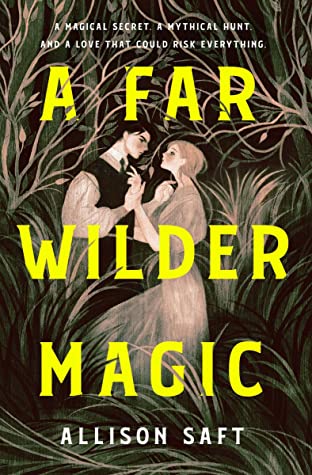
Genres: Fantasy
Representation: Jewish-coded MC, minor M/M and sapphic characters
Published on: 8th March 2022
ISBN: 1250623650
Goodreads

When Margaret Welty spots the legendary hala, the last living mythical creature, she knows the Halfmoon Hunt will soon follow. Whoever is able to kill the hala will earn fame and riches, and unlock an ancient magical secret. If Margaret wins the hunt, it may finally bring her mother home. While Margaret is the best sharpshooter in town, only teams of two can register, and she needs an alchemist.
Weston Winters isn’t an alchemist--yet. Fired from every apprenticeship he's landed, his last chance hinges on Master Welty taking him in. But when Wes arrives at Welty Manor, he finds only Margaret and her bloodhound Trouble. Margaret begrudgingly allows him to stay, but on one condition: he must join the hunt with her.
Although they make an unlikely team, Wes is in awe of the girl who has endured alone on the outskirts of a town that doesn’t want her, in this creaking house of ghosts and sorrow. And even though Wes disrupts every aspect of her life, Margaret is drawn to him. He, too, knows what it's like to be an outsider. As the hunt looms closer and tensions rise, Margaret and Wes uncover dark magic that could be the key to winning the hunt - if they survive that long.
In A Far Wilder Magic, Allison Saft has written an achingly tender love story set against a deadly hunt in an atmospheric, rich fantasy world that will sweep you away.
I received this book for free from the publisher via NetGalley in exchange for an honest review. This does not affect my opinion of the book or the content of my review.
Highlights
~alchemy > electricity
~a woman who can shoot is a woman to treasure
~the quest for a magic bullet
~Feels that will make you ache
~Trouble is anything but
It’s funny, I came very close to DNF-ing this book. As a general rule of thumb, if I don’t care about how a book’s going to end by the 20-25% mark, I put it down – there are so many books to read, I just don’t have time to waste on ones I’m not invested in.
And it’s true that at 25%, I really didn’t care very much about where the story was going – even though it’s around that point that the real action starts, aka the hunt for the hala. I liked the characters, but I wasn’t interested in them. And I wasn’t super enthusiastic to read about what is functionally a fox hunt, because I’m that person who thinks hunting that isn’t for food is despicable.
But.
I wasn’t sure about DNF-ing A Far Wilder Magic. I hesitated. I told myself, ‘I’ll just read one more page, to make sure.’ Which turned into ‘Just one more chapter.’ And then ‘…just another chapter, for real this time.’
Reader, I did not DNF this book.
And the primary reason for that is that the prose is so beautiful. I did eventually become very invested in the story and the characters, but the prose held me hypnotised long enough for that to happen. It’s not purple, but it is very descriptive, and Saft comes up with beautiful similes and metaphors, with images that perfectly evoke the very specific vibe she’s going for in a given sentence. It’s gorgeous and hypnotic and more than occasionally breathtaking.
Every now and again, a white-capped wave rears up, snarling, and breaks on the rocks–just enough bite to prove it’s not a tamed creature.
In the world Saft has created, alchemy is very real and very respectable – even if it is as much magic as science. In fact, it’s so respectable that only alchemists can become politicians. I’ll admit I never understood that detail, but humans arrange a lot of things in ways that don’t make sense in the real world, too, so I was willing to accept it and move on. Besides, what’s more important is that it means that Wes, one of our main characters, must become an accredited alchemist if he wants to become the kind of politician who does real good with real change – something that’s incredibly important, and urgent, given the way his family and their fellow Banvish immigrants, followers of the Sumic faith, are treated in the country of New Albion. But due to what reads like learning difficulties – I think in our world Wes might be diagnosed with something like ADHD? – he’s never managed to complete an apprentiship. His last chance is to convince Master Welty to take him on.
Margaret Welty, on the other hand, is no alchemist, despite being the daughter of a very famous one. The only thing she’s interested in is a quiet life, and somehow earning the approval or even just the attention of her famous, but emotionally neglectful, mother. Margaret is an impressive sharpshooter, skilled hunter, and has taught herself to need no one but her dog Trouble and her horse Shimmer. The last thing she wants is Wes turning up on her doorstep – especially while her mother’s away.
And yet.
They’re the same height, nearly nose to nose. Wes decides this means she is tall rather than the alternative.
Saft has pulled various bits of worldbuilding from our world’s history, but with extreme precision: New Albion can easily be read as a stand-in for late-1800s/early-1900s America; the Banvish are very obviously inspired by the Irish immigrants from that time period; the Sumic faith is incredibly similar to Catholicism in its practices; Yu’adir are clearly Jews. Although all three of the religions we see in this book are concerned with a single Creator and differing views on the creatures known as demiurges, the prejudices and stereotypes thrown at Sumics are identical to those that were thrown at Catholics, as the ones about the Yu’adir are interchangeable for the awfulness still said about Jews and Judaism. For example, idiots claim that the Banvish will never be loyal to New Albion because their loyalty belongs to their far-off Pope; this is exactly the crap that was spewed about the Irish immigrants who made it to the States. Similarly, many new Albians believe the Yu’adir secretly run and manipulate the world’s finances via some elaborate conspiracy – where have we heard that before?
“Western Winters, huh? You’re sure you didn’t find him in a children’s book?”
On a more positive note, Saft’s world is a queernorm one – although neither Margaret nor Wes express any queer feelings themselves, queer characters are casually included, and it’s clear no one bats an eye. Men and women also seem to be societal equals, which was a surprise and a delight – it feels like I’ve read very few gender-equal stories recently.
This is all important – the religious conflicts are the main reasons people turn on Margaret and Wes when the two of them join the hunt – but I never felt overwhelmed by it. Saft doesn’t believe in info-dumps or lecturing her readers. It feels like you absorb the worldbuilding almost by osmosis, just by holding the book; that’s how deftly the information is imparted, how well it’s woven into the story.
Now that is the first thing he’s said that makes sense. All dogs deserve veneration, maybe even canonization.
And it’s a hugely, massively character-driven story. The hunt for the hala is not really what this story is about – although even Margaret and Wes think it is! But really, A Far Wilder Magic is a love story – and yet I wouldn’t call it a capital-R Romance either. Romance can be deep and intricate too, but it’s fundamentally escapist – it’s not a real Romance if it doesn’t have a happy ending – and A Far Wilder Magic doesn’t feel quite like escapism. It’s polished to perfection – but it feels raw. It’s gentle, even tender – then feral and painful. It’s about so many kinds of hurt and unfairness and prejudice – religious and racial, and to a lesser extent classist and…whatever it’s called when you look down on those who struggle with academics.
Her hair tumbles from beneath her cloche hat in curls, as rich and round as chestnuts, and pearls drip from her ears like raindrops from the lip of a petal.
I really don’t know how to describe this book. Wes and Margaret both undergo huge character development between the start of the book and its end, which I adored, and thought was done extremely well. They both have their own baggage. They both have sharp edges – even if Wes’ glitter – and yet, they find a way to fit together. Without ever intending it.
she watched him fall in love with her at the end of a gun.
And I really can’t talk about it much without spoilers, but I loved how Margaret, who is tough and prickly and needs no one…how the narrative allowed her to be soft, in the end. That she didn’t have to want to change the world. The quiet message that less dramatic, quieter dreams and desires are just as valuable as big loud world-changing ones. That it’s okay to not want to be a leader, a pioneer, a trailblazer. I don’t think we get that in SFF very often. SFF is so concerned with big, dramatic stories that we lose the quieter ones, sometimes, and Saft has…brought that back. That thread of something quiet and warm.
I hope we can hold onto it.
A Far Wilder Magic is a book about hurts, and it’s a book about healing. It’s about letting no one else define who you are. It’s about family, and what that’s supposed to look like and be like. And A Far Wilder Magic is all of this, threaded through with surprising humour, written in poetry, and soft even when it’s sharp.
It’s an absolute knock-out, and you really need to read it.
So make sure it’s on your 2022 list!
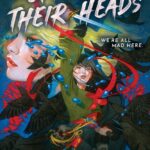

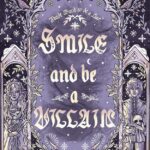
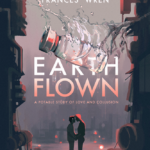

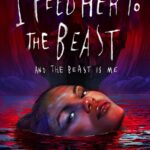
Leave a Reply